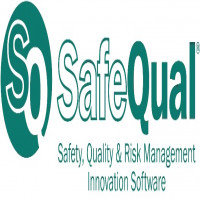Are Incident Reports Confidential? What Every Employee Should Know

Strong 8k brings an ultra-HD IPTV experience to your living room and your pocket.
When an incident happens in the workplace—whether it’s a safety issue, misconduct, or a system failure—one of the first steps is documenting it through an incident report. But many employees, especially in remote or hybrid environments, often wonder: Are incident reports confidential? And who actually gets to see them?
Understanding how incident reports are handled is essential not just for compliance but for building trust across distributed teams. Let’s break it down in plain language.
What Is an Incident Report?
An incident report is a formal record of an unusual event that occurred in the workplace. It could involve injuries, equipment breakdowns, breaches of protocol, harassment claims, or anything else that needs to be officially documented.
For example:
- A remote employee clicks on a suspicious link and exposes sensitive data.
- A team member reports inappropriate messages in a project chat.
- A contractor is injured while working on-site for your company.
Each of these would require an incident report to be filled out and submitted—often digitally, especially in distributed teams.
Who Can Access Incident Reports?
This is where the issue of confidentiality comes into play.
In most organizations, incident reports are not public documents. However, they are not strictly private either. Access depends on your internal policies, the nature of the incident, and sometimes, legal requirements.
Here’s a general breakdown of who might have access:
Role Access to Reports
Direct Managers Sometimes, depending on the incident
Human Resources Almost always
Legal Department If necessary
The Reporter Typically, yes
The Accused (if applicable) Usually not, unless involved in an investigation
Other Employees Rarely or never
So, while incident reports are treated with discretion, they are shared internally on a need-to-know basis. This ensures that the situation is handled appropriately while maintaining reasonable privacy for those involved.
Are There Laws About Confidentiality?
Yes—and no.
There is no single universal law that covers all incident reports across all industries. But many sectors have regulations around how certain types of incidents must be reported and who can access the information.
For example:
- HIPAA governs confidentiality in healthcare-related incidents involving patient information.
- OSHA mandates the reporting of workplace injuries, but only certain details are made public.
- In harassment or discrimination cases, employers have a legal obligation to investigate, but not to publicize the report.
When in doubt, it’s best to consult your legal team or HR department to ensure your handling is both ethical and compliant.
Why Confidentiality Matters
Employees need to trust that if they report something, they won’t face retaliation—or worse, become office gossip.
Here’s what can happen if confidentiality isn’t taken seriously:
- Team members may hesitate to report future incidents.
- Company culture can deteriorate.
- Legal risks increase significantly.
In remote or virtual teams, where communication is already filtered through screens and apps, the stakes are even higher. Ensuring that incident reports are treated with care shows your team that leadership is listening—and that the organization takes issues seriously.
Tips for Handling Incident Reports in Remote Teams
Remote environments require a different kind of discipline when it comes to incident reporting. Here are a few actionable tips:
Use a secure, centralized system. Email isn’t good enough. Use a trusted platform like RLDatix to document and manage reports securely.
- Train your team on confidentiality. Ensure managers and HR know what they can and can’t share.
- Limit access rights. Not everyone needs to see the full report. Assign role-based permissions.
- Acknowledge receipt quickly. Let the reporter know their concern is being reviewed, even if you can’t share full details yet.
- Document all actions taken. Transparency doesn’t mean sharing everything; it means documenting your process clearly.
How RLDatix Supports Confidential Incident Reporting
RLDatix is a platform designed to help organizations manage risk, improve safety, and support incident reporting processes—all while maintaining confidentiality.
What makes RLDatix useful for remote and hybrid teams?
- Role-based access control ensures only the right people see sensitive data.
- Audit trails provide full visibility into how reports are handled without breaching privacy.
- Customizable workflows mean that reports go to the right departments automatically.
More importantly, it helps foster a culture of accountability. When employees know their concerns are taken seriously and managed securely, they’re more likely to speak up when it counts.
Real-World Example
A project manager at a startup noticed repeated conflicts between two remote team members that were starting to affect morale. After collecting a few Slack messages as evidence, she filed an incident report using the company’s internal system, which was powered by RLDatix.
The system automatically flagged HR and a compliance officer, but did not alert the entire leadership team—preserving discretion. Within days, HR conducted a virtual interview, resolved the issue, and provided both parties with coaching. The team lead received an anonymized summary of the outcome to prevent future issues.
No one outside of the need-to-know circle ever saw the original report.
What Every Employee Should Know
Incident reports are meant to protect—not punish.
If you’re a team member thinking about filing one, know this:
- You won’t be publicly named.
- Your report will be seen only by the right people.
- You can follow up for updates—but don’t expect all details.
- Your courage to speak up helps improve the entire work culture.
If you’re a leader, make sure your team knows these things too. A transparent process leads to a safer, stronger company.
Conclusion
So, are incident reports confidential? Yes, but with context. They are not public-facing documents, but they’re also not locked away forever. The key is thoughtful, role-based access and a secure reporting system that respects everyone involved.
For remote teams in particular, the ability to report incidents safely and confidently is essential to maintaining culture, performance, and trust.
Want to learn more about secure, ethical incident reporting? Explore RLDatix for tools that help you handle reports with professionalism and care.
Note: IndiBlogHub features both user-submitted and editorial content. We do not verify third-party contributions. Read our Disclaimer and Privacy Policyfor details.







